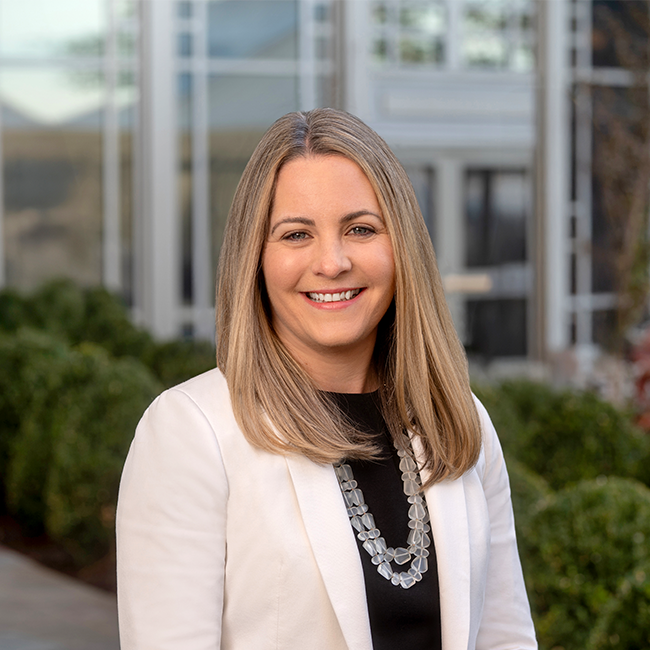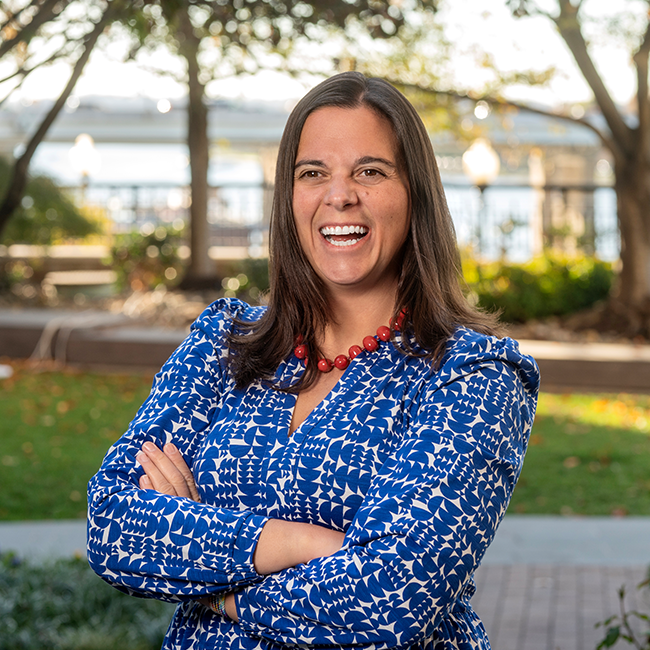
2024 Funding Announcement:
The Kissick Family Foundation Frontotemporal Dementia (FTD) Grant Program will fund a second cohort of research to understand the fundamental biology of why and how sporadic forms of FTD develop. In partnership with the Milken Institute Science Philanthropy Accelerator for Research and Collaboration (SPARC), the program seeks to broaden the foundational knowledge of FTD to spur diagnostic and therapeutic advancements. The SPARC online grant portal is now accepting applications for two-year projects to conduct basic or early-stage translational research on this topic.
Description and Background
The Kissick Family Foundation FTD Grant Program intends to award up to five two-year research grants led by doctoral-level investigators at qualifying research-based institutions worldwide. Projects will be eligible for up to $500,000 in funding over two years, inclusive of indirect costs.
Frontotemporal dementia is a family of neurodegenerative conditions that cause changes in behavior, mood, executive function, language, memory, and motor function. Based on brain pathology, FTD could account for as many as 10-20 percent of all dementia cases. The disease is underdiagnosed, and a true global prevalence estimate is hindered by a general lack of awareness and the complex nature of its detection. The hallmark trait of FTD is a progressive deterioration of the brain’s frontal and temporal lobes, but specific biomarkers or treatments for FTD have not been developed.
Research into FTD linked to the known autosomal dominant genetic variants GRN, MAPT, and C9orf drives most of the current scientific development. Yet only about 25-30 percent of patients have identified genetic causes, pointing to the need for targeted research to understand sporadic FTD that occurs outside of the autosomal dominant forms. Therefore, this call for proposals solicits projects that address the fundamental etiologies and mechanisms for sporadic FTD. For the purposes of this request for proposals (RFP), sporadic FTD is defined as FTD that develops without identified mutations in the autosomal dominant genes GRN, MAPT, and C9orf.
The Kissick Family Foundation FTD Grant Program will support fundamental science and early-stage translational research in sporadic FTD. The foundation will build on its first cycle of the grant program to continue prioritizing projects that are rigorous, that demonstrate courage to approach the field in a new way, and that maximize impact in FTD. By supporting research projects in sporadic FTD, this program seeks to grow and strengthen the research ecosystem and accelerate progress toward a healthy life for people living with FTD.
Scientific Scope
The Kissick Family Foundation aims to accelerate basic discoveries, expedite novel treatment options, and, ultimately, improve patient outcomes for people living with FTD. A broad range of topics are responsive to this call. For example, proposals may target the disease's basic biology, develop and validate biomarkers that can be used to diagnose and track disease progression more effectively, or preclinically assess novel therapeutic targets. All must examine factors that are not exclusive to the autosomal dominant genetic pathways and instead must have clear relevance to sporadic FTD. Emerging scientific evidence suggests that genetically autosomal dominant and sporadic FTD share common biological processes, such as pathological protein aggregation, impaired cellular waste management, and neuroinflammation; further study of these and other cellular mechanisms will accelerate discovery in all forms of FTD research.
To be considered responsive to this call, research projects with a genetic focus may use models, concepts, and inquiries related to known variants (including GRN, MAPT, and C9orf72). However, all applications must feature an experimental validation component or a written statement describing the relevance beyond those cases. The proposals will be evaluated based on their perceived impact on sporadic FTD.
We will prioritize proposals that use an intentional diversity of approaches to advance the fundamental understanding of sporadic FTD. The following scientific sub-priorities are examples; responsive topics include but are not limited to:
- Investigate patterns of molecular mechanisms and pathologies associated with FTD (e.g., protein aggregation, cellular waste accumulation, and neuroinflammation).
- Examine risk alleles, variants of unknown significance, or noncoding regions and related genetic mechanisms (outside of the established autosomal dominant forms).
- Develop or explore potential biomarkers for diagnosis, clinical trial measurement, or disease prognosis.
- Establish or explore preclinical therapeutic targets, diversifying treatment options by focusing on sporadic forms of FTD.
These should be considered examples of topics that are responsive to the RFP but by no means constitute an exhaustive list.
Eligibility Criteria
- Each applicant organization must be a nonprofit academic or research institution, including domestic and non-US nonprofit organizations and domestic and non-US public/private academic universities or institutions of higher learning (including colleges, universities, medical schools, and other related academic research institutions); certain qualified governmental agencies with active biomedical research programs may also apply.
- All proposed research projects must be led by a designated principal investigator (PI) who holds a PhD, MD, or related research doctoral degree.
- The PI must be an independent investigator as defined by the host institution.
- New and early-stage investigators are encouraged to apply. New investigators are those who have not yet received substantial independent federal funding for their independent research programs, while early-stage investigators are new investigators who are within 10 years of completing their terminal research degree, medical residency, or equivalent.
- Multidisciplinary investigator collaborations are encouraged to apply. Collaborators should be identified as co-investigators and provide the materials described in the sections below. Proposals with co-investigators must identify a single corresponding PI and submitting institution.
- Institutions may submit multiple proposals, but a unique PI must lead each proposal.
- Applicants may not be currently funded by the Kissick Family Foundation as principal investigators or co-investigators on any FTD grants.
Application Requirements
All completed letters of intent (LOIs) and proposals shall be submitted through the SPARC online grant portal at https://milken.smapply.io/prog/ftd_grant_program/. Below is a list of required components for an application to be considered complete.
Applications shall be single-spaced and formatted in Arial 11-point font with one-inch margins, except where provided templates apply. The SPARC team will enforce formatting and length. Any submissions that exceed the page limit or do not follow the requirements above shall not be considered for review.
Letter of Intent (maximum 750 words)
All applicants must first submit a letter of intent (LOI), which allows the scientific review team to ensure applicant eligibility and determine whether the proposed research fits within the funding program’s scope. Proposed work must be focused on basic or early-stage translational research in FTD. Clinical trials or studies that are exclusively focused on familial FTD will not be considered.
The LOI should include the following information (750-word maximum):
- Project title
- PI name and applicant institution
- Project aims
- The scientific priority area—described above, within the Scientific Scope—or other important gap within sporadic FTD research that the project will address
- A succinct description of the proposed research approach
- Please also address:
- How this proposal integrates elements of innovation within the FTD field, such as by testing a novel hypothesis, integrating new methods or technologies, or bringing new ideas and perspectives to FTD
- How the proposed research would be significant in furthering our understanding of why and how sporadic FTD develops
- How this idea or proposed line of research would specifically benefit from the Kissick Family Foundation funding opportunity
- The LOI also requires, via a separate form within the application portal, the applicant organization’s legal name; PI name, degree, position, and contact information; and the organization’s tax ID (for US) or registered charity number.
LOIs are due November 1, 2024, through the SPARC online grant portal, which can be accessed via this link: https://milken.smapply.io/prog/ftd_grant_program/.
Eligible applicants with a proposed project in the scope of this funding program should submit scientifically rigorous, innovative research studies with significant potential to further our understanding of sporadic FTD. Should the Kissick Family Foundation, in its sole discretion, find that a project described in an LOI meets these criteria, the applicant will be invited to submit a full proposal.
Full Proposal Requirements
Scientific Proposal (maximum six pages)
Applicants invited to submit a full application must include a formal proposal outlining the intended project. Proposals are due February 7, 2025.
Proposals shall be no more than six pages in length and must include the following materials, organized in the following order. Preliminary data are not required.
- Project Summary. One page maximum, including the following information:
- Project title
- Abstract
- Aims and milestones: summary of the project’s plan, what it aims to accomplish, and the major milestones it will complete in an estimated time frame
- Name, degrees, positions, and institutions of the PI and, if applicable, co-investigators
- Scientific Approach. Five pages maximum, inclusive of figures and references in the applicant’s preferred format, including the following sections:
- Project Goal and Significance: Statement of what the project plans to accomplish and why the proposed research is important with a high potential for impact on the FTD field and sporadic FTD.
- Background: Description of the scientific rationale and foundational knowledge that underlie the proposed research; preliminary data are not required.
- Methods: Description of the research methods the PI intends to use in pursuit of the aims. Please provide enough detail to explain how the proposed experiments will rigorously interrogate the central scientific question and, if applicable, how the approach could be scaled to expanded studies in the future.
- Timeline: Statement of how the PI plans to accomplish the project goal and scientific aims within a two-year grant term.
Protocol Synopsis and Data Sharing Plan (one page)
Proposals must include a succinct, technical protocol synopsis that details the methods, processes, and protocols being used in the project. Include an acquisition plan for obtaining necessary research resources (e.g., tissue samples, equipment, or model organisms) and additional timelines, if applicable.
Applicants must also describe their commitment to openly sharing project results and other collateral, such as data (de-identified, where applicable), reagents, protocols, and other research tools developed under Kissick Family Foundation funding. PIs are expected to describe their plan for data sharing and how research products are disseminated to other institutions and researchers for noncommercial use to advance the fundamental understanding of FTD and maximize scientific impact.
- Applicants should identify the specific repository to which they intend to upload and share project protocols, datasets, and study results.
- Applicants are expected to upload study results to preprint servers.
- Applicants are strongly encouraged to publish any manuscripts resulting from funded research in an open-access venue and are permitted to include article processing charges for open-access publications in their proposed budget.
- Applicants should describe policies and procedures for ensuring that key personnel and other applicable employees and contractors will comply with and adhere to the data-sharing plan.
- Fees and costs associated with data management and sharing are allowable expenditures.
Research Team (maximum one page)
Applicants must outline the research group’s ability to address the proposed scientific question and support the research. This statement should identify key personnel through a full roster of project team members in addition to the PI(s).
Detailed Budget (template provided)
Applicants must provide a detailed budget using the template provided. The detailed budget in USD should be accompanied by a narrative summary and budget justification, including how the PI and any co-investigators, if applicable, intend to spend their time on the project. Projects can be budgeted for two years and up to US$500,000 (about US$250,000 per year) inclusive of up to 15 percent indirect costs. If more than one institution will be involved in the project, one shall be proposed as the applicant organization and the other included as a sub-grantee, and the maximum allowable indirect rate across all institutions will remain 15 percent of the total award budget. Acceptable expenditures for direct costs include:
- salary for the PI, co-investigators (if applicable), graduate students, postdocs, staff scientists, and other personnel;
- fringe benefits for the PI, co-investigators (if applicable), graduate students, postdocs, staff scientists, and other personnel;
- equipment, supplies, and software;
- computing and data storage costs, including support for data management and sharing;
- any fees required to access or use human tissue, samples, datasets, or animal models;
- project-related travel, such as to conferences, to share research results or between institutions to facilitate a collaborative project;
- publication costs, including article processing charges for open-access publications; and
- up to 15 percent in funded institution’s indirect expenses. It is not necessary to provide specific details regarding indirect cost expenditure.
Grants selected for funding will be made payable to the applicant organization. Under no circumstances will funding be paid to, or earmarked for, any individual. International applicants should note that grants will be made in USD, and the Kissick Family Foundation is not responsible for changes in conversion rates. Payments will be made annually.
PI Biosketches (maximum five pages per PI)
A biosketch of the PI and co-investigators (if applicable), using the National Institutes of Health (NIH) template, is required and shall not exceed five pages per PI. If the PI or co-investigators do not have a biosketch in an NIH template, a CV is sufficient.
Institutional Letter of Commitment
Each full application must include an institutional letter of commitment stating that the applicant institution will be able to support the research led by the PI and administer the grant according to a written grant agreement to be entered into between the selected organization and the Kissick Family Foundation. Note that this is not a requirement at the LOI stage. The letter should be signed by an authorized organizational representative (e.g., department chair or dean of sponsored research). Collaborative applications from multiple institutions can either submit separate letters of commitment from each institution or have one letter signed by all relevant authorized institutional representatives from each institution. There is no required template for this letter.
- Additional documentation within the online form will include a completed electronic signature confirming that the grant proposal contains information that is true, complete, and accurate and that false or fraudulent statements may subject the institution to criminal, civil, or administrative penalties.
- Upon request, an applicant institution may be required to submit additional information to document its nonprofit status.
- Non-US-based governmental organizations must also provide:
- A list of voting board members and officers, as well as the name of the organization’s highest-ranking member (e.g., CEO).
- Additional organization governing documents and other documentation via a secondary questionnaire, following your proposal submission. The Kissick Family Foundation will make this request during the proposal review. For more information, please visit https://www.ngosource.org/how-an-ed-works.
- US-based governmental organizations (excluding academic/research institutions that are public charities) must provide:
- A full copy of the enabling statute that authorized the organization’s creation.
- A copy of the organization’s governing documents (such as articles of organization or constitution and bylaws), if applicable.
- Any correspondence from the Internal Revenue Service confirming the organization’s tax status, if applicable.
Key Dates and Timeline
- Tuesday, October 15, 2024: An informal information session for interested applicants will be held at 11:00 a.m. US Eastern Time (8:00 a.m. Pacific, 17:00 Central European). Attendees must register using this Zoom registration link.
- Friday, November 1, 2024: Letter of Intent is due. Submit via the SPARC online grant portal by 11:59 p.m. US Eastern Time.
- Full proposals are invited following LOI review in mid-December 2024.
- Friday, February 7, 2025: Applicants shall submit their full proposals via the online grant portal by 11:59 p.m. US Eastern Time.
- Awardees notified as early as June 2025.
Selection Process
Selection Criteria
Applications displaying strength across the following domains will be more likely selected for funding by the Kissick Family Foundation.
- Scientific and technical merit: the quality of the scientific rationale and the use of resources, equipment, and experimental designs to evaluate the central scientific question rigorously or test the stated hypothesis/hypotheses. Experimental design is highly rigorous, and the study is appropriately statistically powered to produce meaningful findings even in the absence of supportive or positive results.
- Significance and potential impact: the success of this proposed research would be significant in furthering our fundamental understanding of sporadic FTD, demonstrating potential to lead to breakthrough discoveries for the disease, and achieving near-term scientific impact.
- Innovation: a proposal’s ability to bring new ideas, knowledge, methods, approaches, or perspectives to the FTD field and generate new avenues to understand, diagnose, treat, manage, prevent, or cure FTD. Projects introduce new technologies, methods, hypotheses, perspectives, or investigators to the field.
- Team capabilities and competencies: the research group’s ability to address the research question and support the research.
- Cost realism: a realistic budget that adequately supports personnel, equipment, overhead, open-access publishing costs, and other needs to carry out the project successfully.
Review Process
Funding decisions will be made after a multistep review process comprising the following:
- Eligibility and scientific scope review: As described above, LOIs will first be reviewed by the scientific review team to ensure applicant eligibility and determine whether the proposal fits within the funding program’s scope.
- Peer review: Full applications will be peer-reviewed by an external panel of expert reviewers utilizing the selection criteria described above. Applications will be ranked according to peer review, and a select number of highly prioritized applications will move forward to the next round of evaluation.
- Scientific leadership review: The FTD Grant Program’s scientific leadership—including the Scientific Advisory Board—will evaluate the highly prioritized peer-reviewed applications and overlay program strategy to achieve an overall grant portfolio that meets the fund’s goals.
- Kissick Family Foundation determination: The scientific leadership of the FTD Grant Program will provide a final prioritized list of funding recommendations to the Kissick Family Foundation for consideration. The Kissick Family Foundation will make final funding decisions, and applications will be funded subject to a written agreement, as further discussed below.
Progress Reporting and Evaluation
Funded investigators will be expected to share updates on project highlights, progress, and challenges.
- At 12 and 18 months after receiving funding, each PI will provide short, written updates describing major project progress based on milestones identified when the proposal was submitted and any challenges they have faced along the way. Depending on the substance of these updates, PIs may be asked to engage in brief conversations with the program’s scientific leadership.
- At 18 months after receiving funding, funded investigators may be eligible for an additional year of follow-on support based on satisfactory progress against milestones, specific project needs, and overall program alignment. These funding decisions will be made at the sole discretion of the Kissick Family Foundation and should not be included in the budget.
- At the end of the grant term (24 months after receiving funding for projects that do not continue for an additional year or 36 months for projects that continue for an additional year), PIs will submit a full, written narrative and financial report for the overall project.
- Funded investigators may be invited to participate in annual funded investigators’ meetings to present and discuss their research plan and preliminary and/or unpublished results of research supported by the Kissick Family Foundation. Expenses associated with the meeting will be funded separately.
Grant Terms
Each funded research institution and PI will be required to cosign and agree in writing to the Kissick Family Foundation’s grant terms within 30 days from receipt of notice of the award and prior to funds being released. The grant terms include but are not limited to the following items.
Any substantial changes to the project, including activities, budget, protocols, or grant period, require written approval from the Kissick Family Foundation before proceeding with such activities or spending or committing any remaining funds from the grant.
Use of Funds
- The applicant organization must be able to receive awarded funds and allocate them toward the funded FTD research project.
- Institutional review board or the local equivalent (for human studies) or institutional animal care and use committee or the local equivalent (for animal studies) approval will be required before initial payments are made.
- If an applicant organization proposes to supplement any funds provided by the Kissick Family Foundation with funds provided by a third party, the organization must first provide notice to the Kissick Family Foundation and must ensure that the funding terms that attach to any such third-party funds do not preclude sharing of data or publication of project results as contemplated in this RFP.
- Teams may request no-cost extensions no less than 30 days before the end of the grant term.
Intellectual Property and Sharing Data and Results
Each funded organization shall own the rights to all intellectual property developed by or on behalf of that organization under the Kissick Family Foundation funding, in accordance with such organization’s applicable intellectual property policies. The Kissick Family Foundation shall have the right to use and practice all such intellectual property for internal, noncommercial research purposes. The Kissick Family Foundation would also have the right to publicly disclose research results in press releases, announcements, and otherwise (subject to the funded organization’s advance approval if any such public disclosure will occur prior to publication of the applicable results).
Each funded organization must agree to share project results and other collateral, such as data (de-identified, where applicable), reagents, protocols, and other research tools developed under the Kissick Family Foundation funding with other researchers for noncommercial use to advance the understanding of FTD and to maximize scientific and patient impact.
It is a condition of any funding provided by the Kissick Family Foundation that the investigator seeks to publicly release the results of the funded project, such as on a preprint server, within 12 months after completion of the project. Furthermore, funded investigators are strongly encouraged to publish the results of the funded project in an open-access, peer-reviewed journal within 18 months after the completion of the project. Each publication would acknowledge the Kissick Family Foundation’s role in supporting the project. If the investigator does not publish the results within such a time frame, the Kissick Family Foundation shall have the right to make such results public. Specific financial support for such publications are allowable expenses in the project budget. Funded investigators must inform the Kissick Family Foundation of any publication supported by their funds within 30 days of publication.
Funding Awarded at the Kissick Family Foundation’s Discretion
Responding to this RFP, submitting an LOI, and/or submitting a full proposal do not entitle any individual or institution to receive funding from the Kissick Family Foundation. Funding, if any, would be provided at the Kissick Family Foundation’s sole discretion pursuant to the terms of a written grant agreement executed by the Kissick Family Foundation and the selected awardee institution and acknowledged by the PI.
Contact Information
For all inquiries about the online process, necessary documentation, research priorities, or scientific requirements, please contact [email protected].
An automated email confirmation is generated upon submission of the application. If you do not receive a confirmation within 24 hours of submitting your application, please check spam filters and then contact [email protected].
See also:
Return to the Accelerating Discovery for Frontotemporal Dementia homepage
Learn more about the Kissick Family Foundation Frontotemporal Dementia Grant Program














